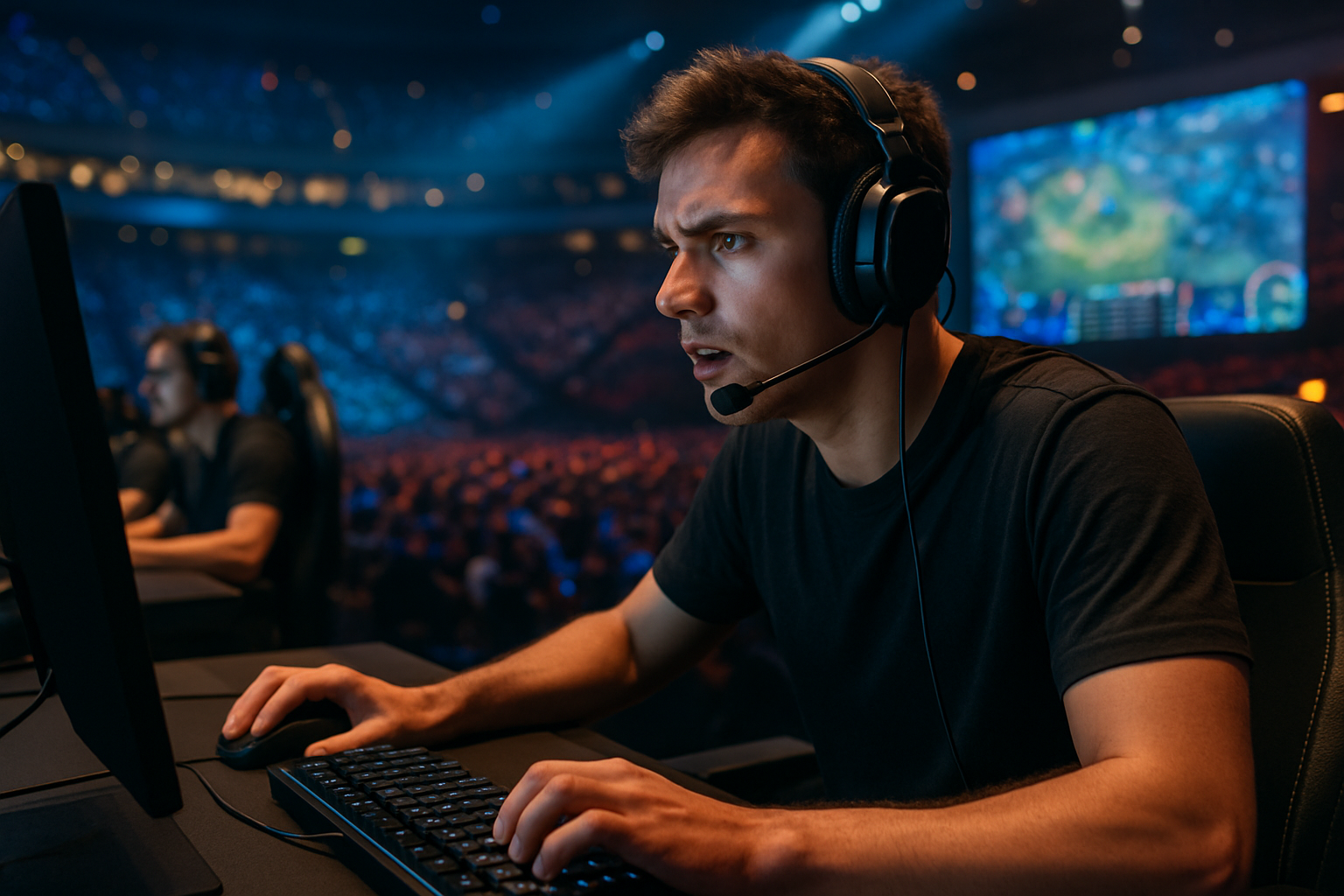10 Esports Events Expected to Make Major Waves in 2025 — And Why Analysts Are Watching Them
Esports in the United States continues to gain momentum, and many analysts believe 2025 could become one of the most transformative years yet. Audience numbers are rising, investment is expanding, and major titles are preparing new formats, leagues, and competitive opportunities. While the future is never guaranteed, industry forecasts, player interest, and early announcements suggest that several upcoming events have strong potential to attract mainstream attention and reshape the competitive landscape. As fans look ahead, these tournaments are already generating conversation, hype, and early media coverage across the gaming community.

The competitive gaming industry stands at a pivotal moment as 2025 approaches, with tournament organizers, sponsors, and professional teams positioning themselves for what many consider a defining year. Multiple factors are converging to create an environment where esports events have the potential to reach new audiences and establish lasting impact on the gaming community.
A Record-Breaking Year for Competitive Gaming
Several major tournaments are implementing expanded formats and increased prize distributions, creating opportunities for more players to participate at professional levels. The International Dota 2 Championship continues to set benchmarks with its crowdfunded prize pool model, while the League of Legends World Championship is expanding its regional qualification system. Counter-Strike tournaments are introducing new venue partnerships across different continents, and fighting game communities are seeing increased support from major publishers.
Traditional sports organizations are also investing more heavily in esports infrastructure, with several announcing new tournament series and training facilities. This institutional backing provides stability and resources that enable longer-term planning and development of competitive scenes.
Standout Performances Across Major Titles
Established gaming titles are experiencing renewed competitive interest as developers introduce balance updates and new content designed to maintain tournament viability. Valorant’s tactical shooter format continues to attract former Counter-Strike professionals, creating compelling storylines around player transitions and team dynamics.
Overwatch 2 is rebuilding its competitive ecosystem with restructured leagues and modified gameplay mechanics that emphasize individual skill expression. Meanwhile, Rocket League maintains steady growth in both viewership and prize pool distribution, with new regional circuits providing pathways for emerging talent.
Fighting games are experiencing particular momentum, with Street Fighter 6 tournaments drawing large live audiences and multiple classic franchises receiving updated competitive rulesets. The diversity of gaming genres represented in major tournaments reflects the broader appeal of competitive gaming.
Strong Seasons for Fan Favorites
Long-running esports titles are implementing changes designed to maintain audience engagement while preserving the core competitive elements that established their popularity. League of Legends is introducing new international tournament formats that provide more opportunities for cross-regional competition throughout the year, rather than concentrating major events in specific seasons.
Counter-Strike 2’s updated engine and mechanics are creating fresh tactical possibilities while maintaining the strategic depth that defines professional play. Dota 2 continues to evolve its meta through regular updates that require teams to adapt their strategies and player roles.
These established titles benefit from dedicated fan bases and proven tournament infrastructure, providing reliable foundations for major events while still offering opportunities for innovation in presentation and format.
The Unexpected Momentum of Mobile Esports
Mobile gaming competitions are gaining recognition as legitimate esports categories, with several titles demonstrating the technical skill and strategic depth necessary for professional competition. Honor of Kings, PUBG Mobile, and Mobile Legends are establishing tournament circuits with substantial prize pools and professional team structures.
The accessibility of mobile platforms enables broader global participation, particularly in regions where PC gaming infrastructure is less developed. This geographic expansion brings new audiences and playing styles to competitive gaming, creating diverse tournament environments and strategic approaches.
Mobile esports also offer unique advantages for live event production, with streamlined technical requirements and flexible venue options that enable tournaments in locations previously unable to host major PC gaming events.
Why 2025 Will Be Remembered as a Turning Point
Multiple industry trends are converging to create conditions that could establish new standards for esports events and competitive gaming culture. Streaming technology improvements enable higher quality broadcasts and more interactive viewing experiences, while venue partnerships provide access to larger and more diverse audiences.
Corporate sponsorship patterns are shifting toward longer-term commitments and broader brand integration, providing tournament organizers with resources for enhanced production values and player support systems. Educational institutions are also increasing their involvement through scholarship programs and competitive gaming curricula.
The integration of traditional sports business models with esports operations is creating new revenue streams and professional development opportunities for players, coaches, and support staff. This professionalization trend contributes to the overall stability and growth potential of competitive gaming.
Regulatory frameworks are also developing to address competitive integrity, player welfare, and fair competition practices, establishing foundations for sustained industry growth and public confidence in esports as legitimate competitive entertainment.
The combination of technological advancement, financial investment, and institutional support creates an environment where 2025 esports events have the potential to establish new benchmarks for competitive gaming achievement and audience engagement. These developments suggest that the upcoming year will be remembered as a period when esports solidified its position as a major form of competitive entertainment with global reach and cultural significance.




